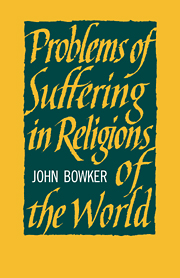7 - DUALISM, DUALITY AND THE UNIFICATION OF EXPERIENCE
Published online by Cambridge University Press: 05 June 2012
Summary
ZOROASTRIANISM, MANICHAEISM AND JAINISM
At first sight the differences between the Western and Eastern traditions seem considerable. This study has shown incidentally that some of the ways in which the differences have often been described are too generalised to be particularly meaningful—the statement, for example, that the Western is world-affirming and the Eastern world-denying; or, as it was put recently, ‘the biggest difference is that Buddhism and Christianity represent two irreconcilable attitudes to evil. Do you aim at being passionless, or do you place the Passion at the centre of life?’ But although such generalisations need to be broken down into far greater detail (in the case of the second, for example, by estimating the centrality of dukkha in Buddhism and the aim of detachment in Christianity), they do nevertheless point to differences at least of emphasis and priority. It may, therefore, be asked whether they are indeed ‘irreconcilable’ or whether there is any common ground between them. In the most obvious sense there is certainly the common ground of the facts and experiences of suffering, from which, as it has been seen, all religions start. Yet even on that most obvious level, an issue is raised between religions: who or what is the subject of those experiences? The answers given to that question are, in fact, estimates of the nature of being human, and although the various answers given are nothing like so divergent as once appeared to be the case, it would be rash to say as yet that the different religions do not involve serious, even radical, distinctions of anthropological analysis.
- Type
- Chapter
- Information
- Problems of Suffering in Religions of the World , pp. 269 - 292Publisher: Cambridge University PressPrint publication year: 1970



